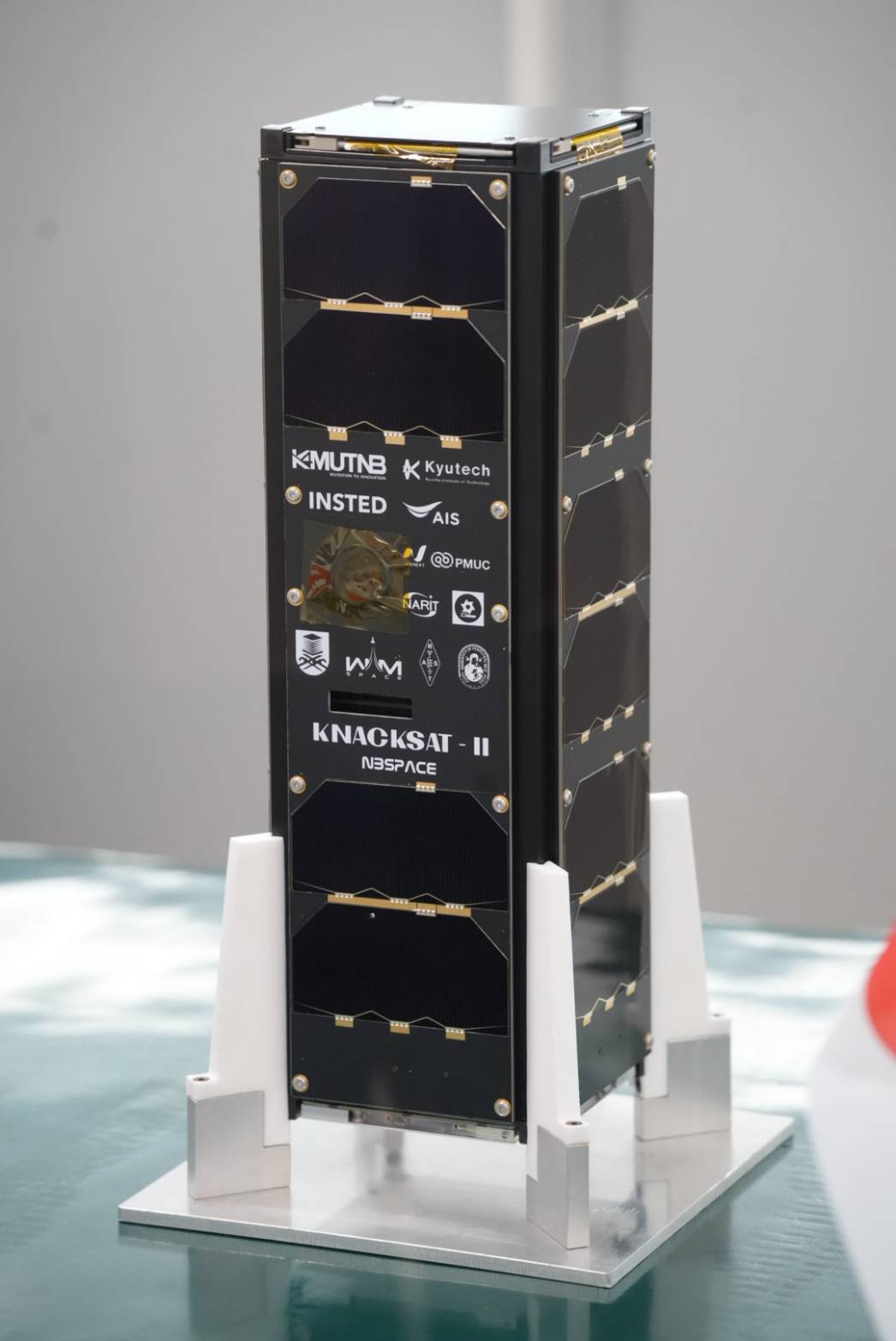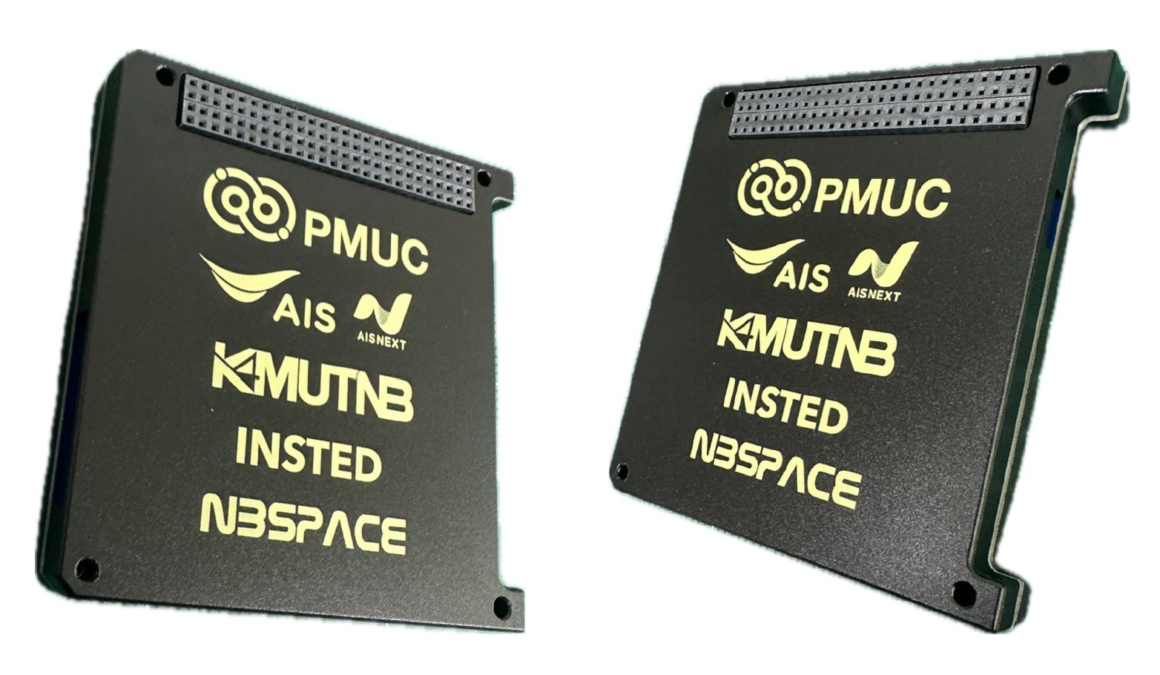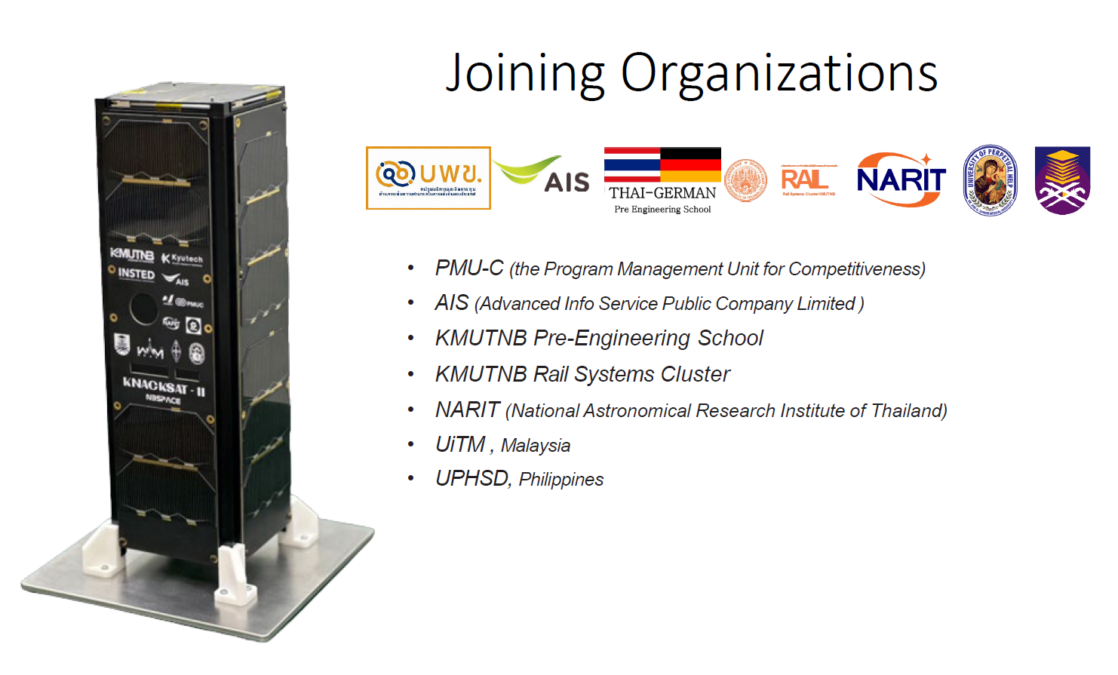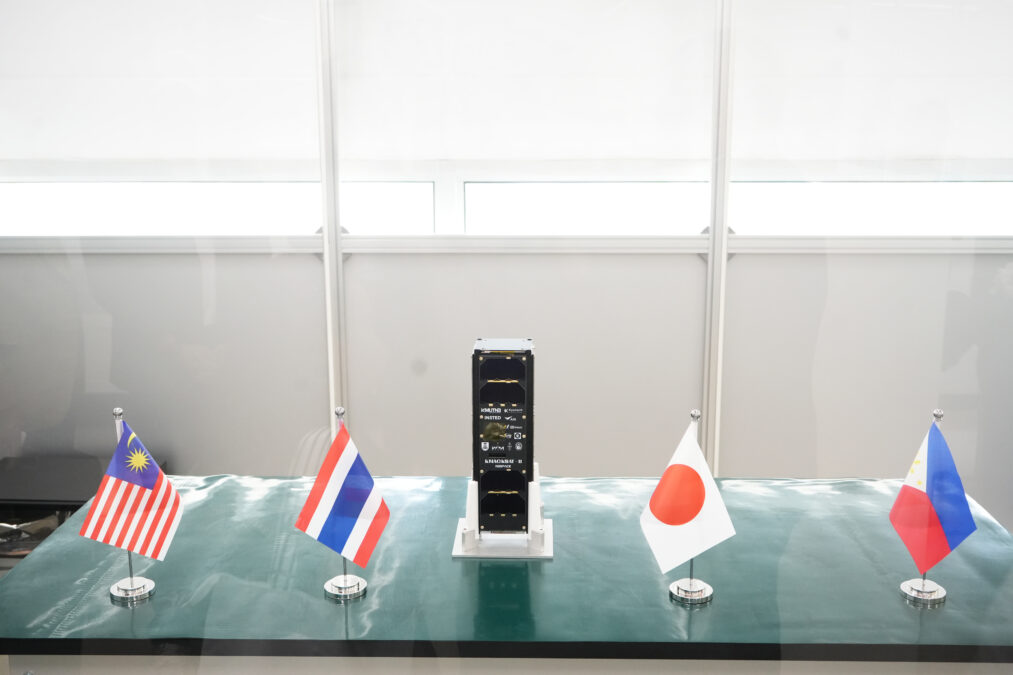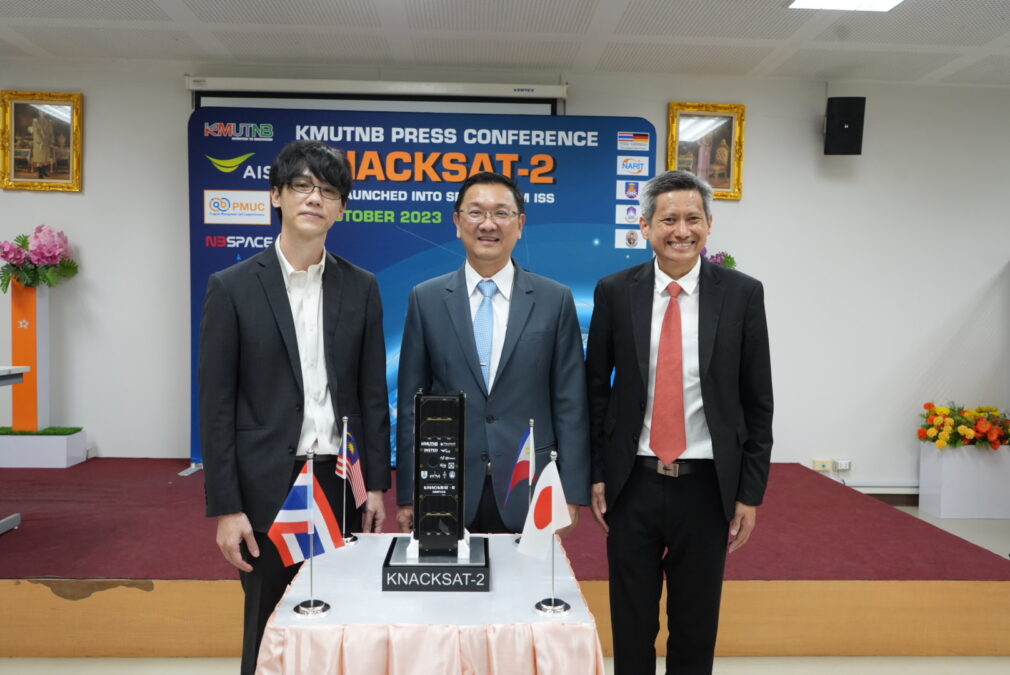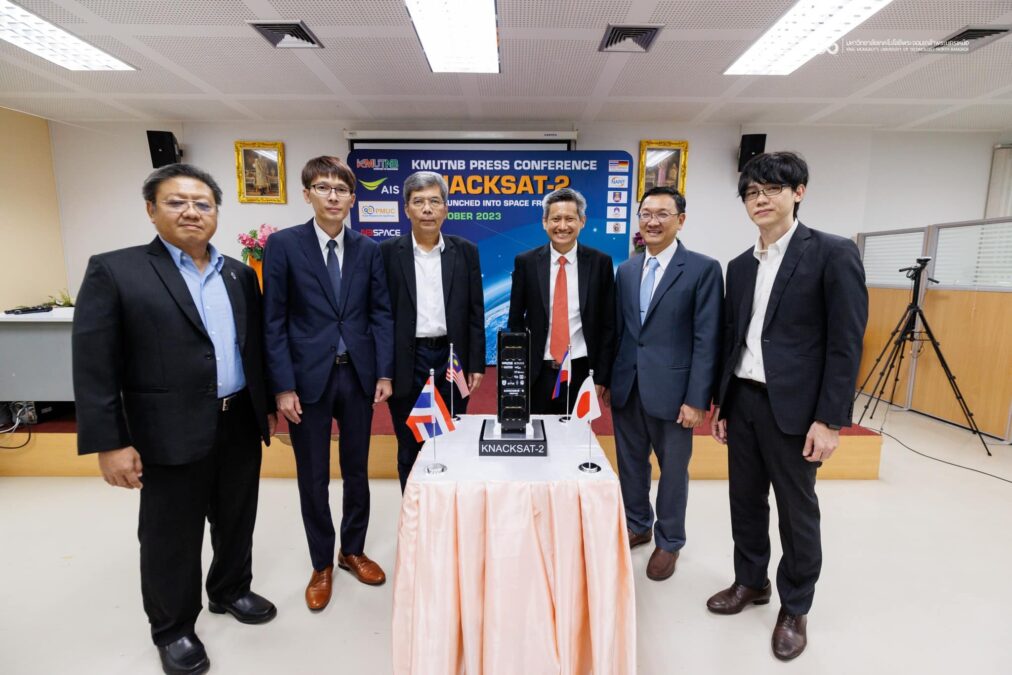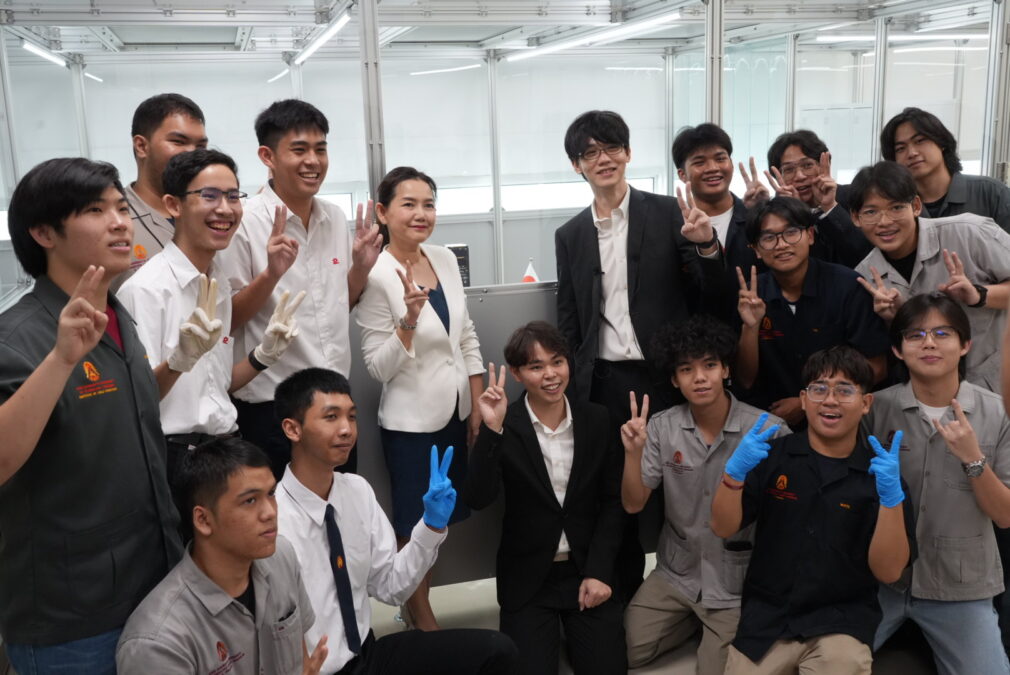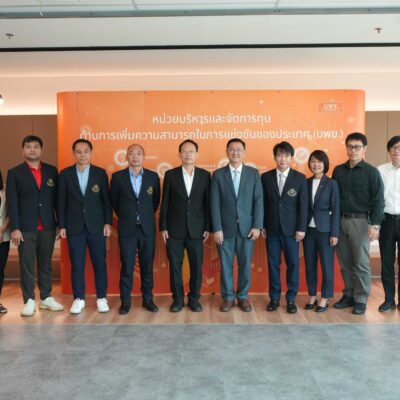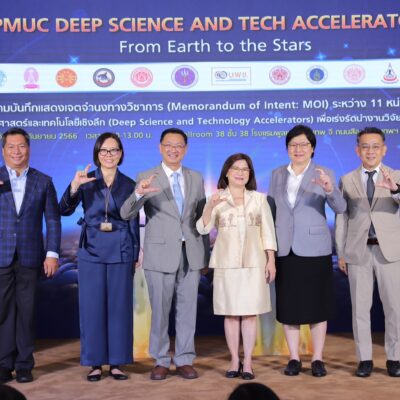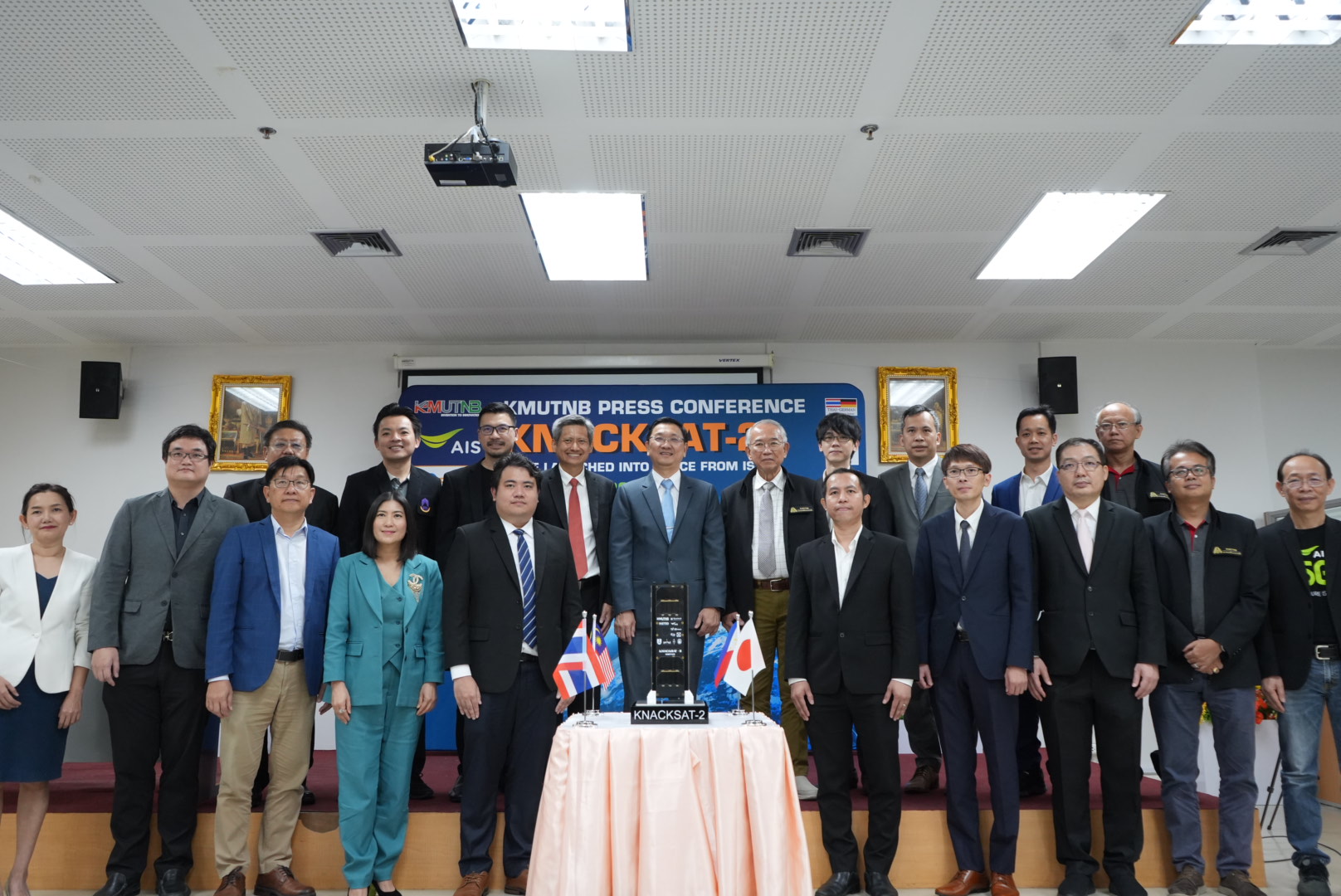
The Program Management Unit for Competitiveness (PMUC) led by Assoc. Prof., Dr. Thongchai Suwansichon, Director of PMUC, in collaboration with King Mongkut University of Technology North Bangkok, Advanced Wireless Network Co., Ltd., and various governmental agencies, held a press conference to announce the handover ceremony of the Knacksat 2 satellite to the Japan Aerospace Exploration Agency (JAXA). The satellite is intended for deployment at the International Space Station (ISS) and launch into the next orbit in the early part of the year 2024.
Knacksat 2, also known as KNACKSAT-2, is a 3U CubeSat satellite project developed by King Mongkut University of Technology North Bangkok (KMUTNB). It adopts the Ride Sharing Platform Satellite format, allowing shared space on the satellite. The Knacksat 2 satellite includes 7 mission payload systems, each representing a collaborative project between KMUTNB and seven organizations, both domestic and international. These organizations include 1) PMUC, 2) Advanced Wireless Network Co., Ltd., 3) Thai-German Engineering Institute (TGI), 4) Rail Systems Cluster, KMUTNB, 5) National Astronomical Research Institute of Thailand (NARIT), 6) UiTM Malaysia, and 7) UPHSD Philippines.
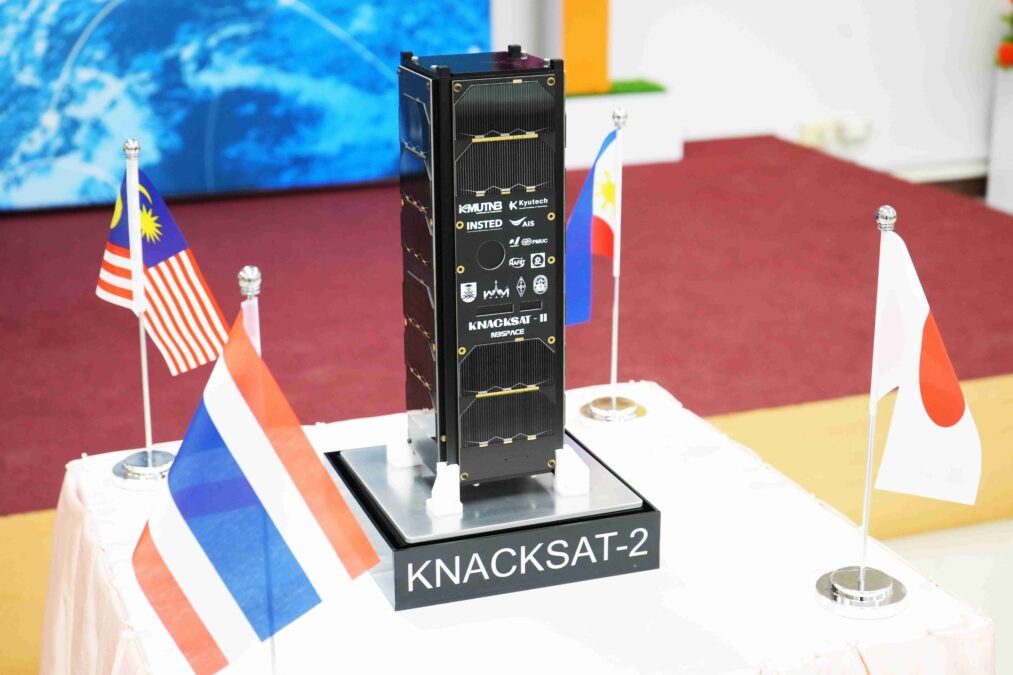
PMUC has provided funding to support KMUTNB in the development of space-based IoT equipment for in-orbit demonstration under the Digital Platform Plan. AIS, Advanced Wireless Network Co., Ltd., is a research and development partner to design and develop IoT payload equipment working through satellites for business use. The research team has developed two payload devices to demonstrate IoT gateway operation and store-and-forward mission in space. Both payload devices share the capability of receiving LoRa signals from ground stations. The primary difference between the two payloads is the complexity of their functions. The less complex payload is referred to as “Postman,” while the more complex payload is referred to as “Chef.” Both payload systems will be integrated into the Knacksat 2 satellite with the aim of facilitating space access and efficient resource utilization for various organizations.
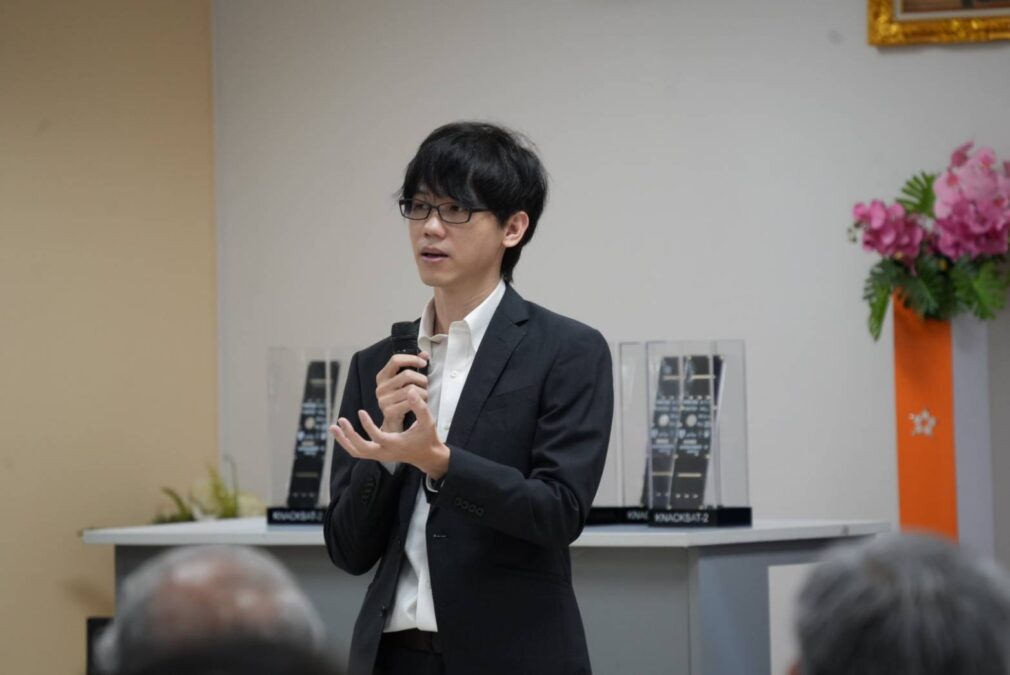
Dr. Pongsathorn Saisucharit, a lecturer in the Department of Mechanical and Aerospace Engineering at KMUTNB, who is the project leader, explained that “Knacksat 2 is a satellite designed and developed by Thais and utilizes over 98% of materials sourced within Thailand. Its goal is to employ IoT Satellite technology to complement IoT networks in areas with installation constraints for regular network cellular stations, such as oceans, mountains, and remote agricultural areas. This technology will support various sectors including defense organizations for data monitoring, environmental agencies for forest fire surveillance, marine and commercial shipping businesses, and widespread agriculture in areas where internet signal installations are challenging. It allows businesses to access valuable data through sensor systems at an affordable cost, developed locally, eliminating the need to import expensive foreign solutions. The fact that our satellite was successfully launched into real orbit will serve as a genuine case study for nurturing future talents who will be instrumental in driving our country’s competitive capabilities forward.”
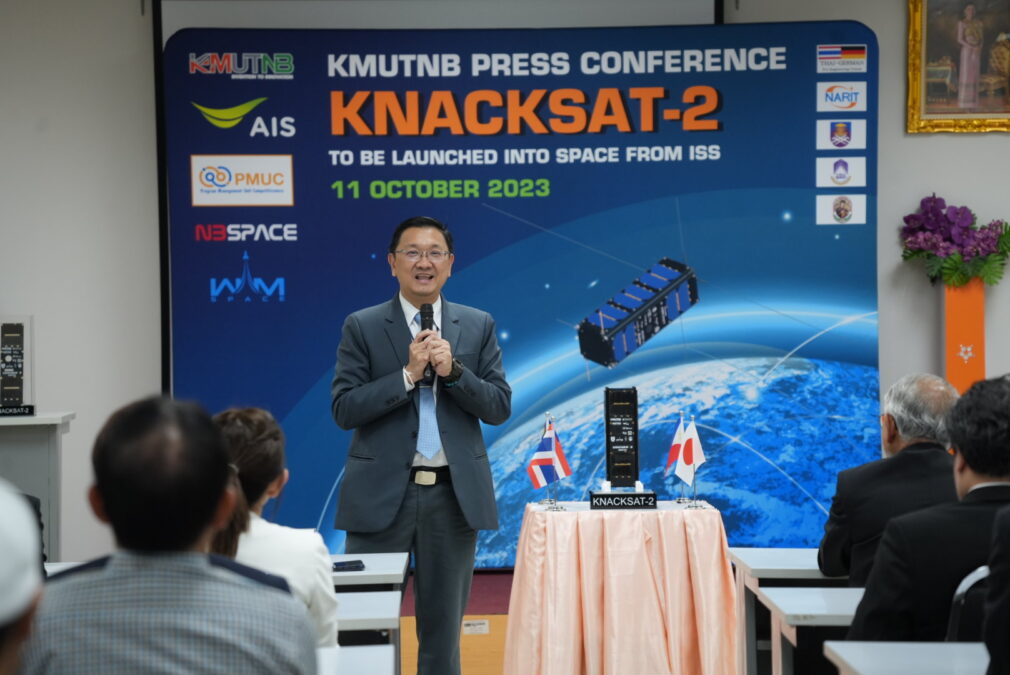
Dr. Thongchai Suwansichon, Director of PMUC, stated, “PMUC’s role is to foster collaboration between the public and private sectors, especially when it comes to leveraging innovative knowledge and cutting-edge technology from universities for commercial purposes. Projects like this are a testament to KMUTNB’s efforts to bridge the gap between academic knowledge and its practical application. The first step is to create a cooperative environment where users and knowledge providers explore opportunities for transforming innovations into new technologies. This then translates into economic and social advancements. Importantly, we aim to empower the people of Thailand with the skills to solve problems and make the country resilient in the face of crises, allowing us to become a leader in the economy driven by innovation in the future.”
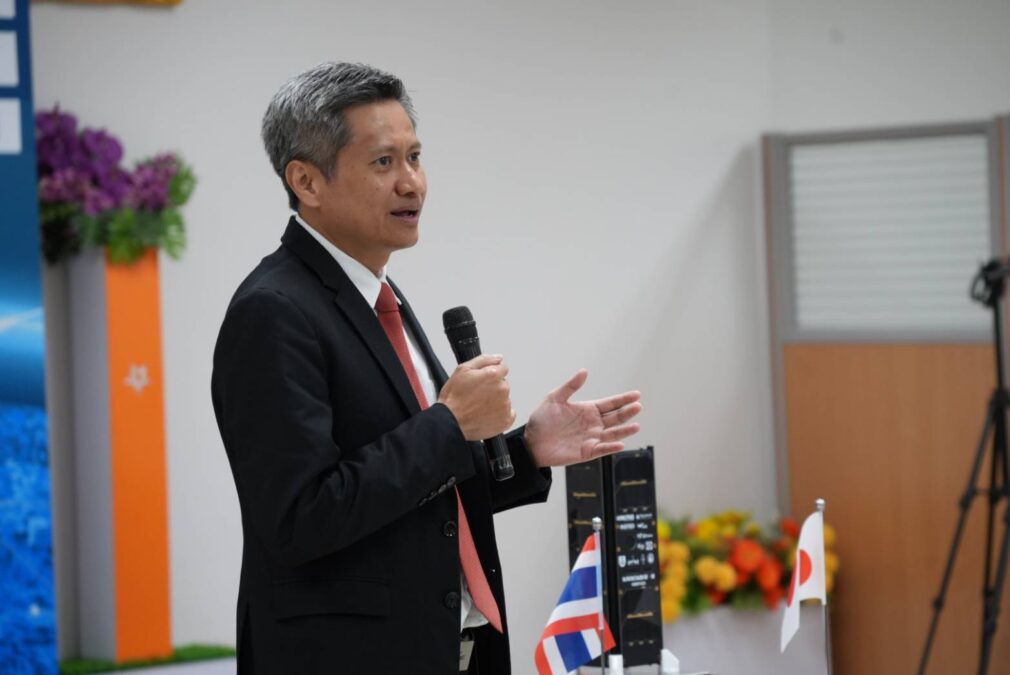
Prof., Dr. Somrerk Jantaraamporn, Vice President for Research and Development, KMUTNB, emphasized, “KMUTNB is a university of technology and innovation, and we aim to transform university knowledge into commercial applications. There are two main aspects to this: the first is developing human capital. In this project, we see that students have been involved from high school through to undergraduate levels, and they have gone on to start their own businesses. There is also a mechanism for collaboration with the private sector, with partners from both private and government sectors providing support. PMUC plays a significant role in this.”
Currently, Knacksat 2 has been successfully developed and is ready to be launched from Thailand. KMUTNB, in collaboration with NBSPACE, Kyushu Institute of Technology (KYUTECH), and the Japan Aerospace Exploration Agency (JAXA), has planned to launch the satellite from the International Space Station (ISS) in early 2024.
